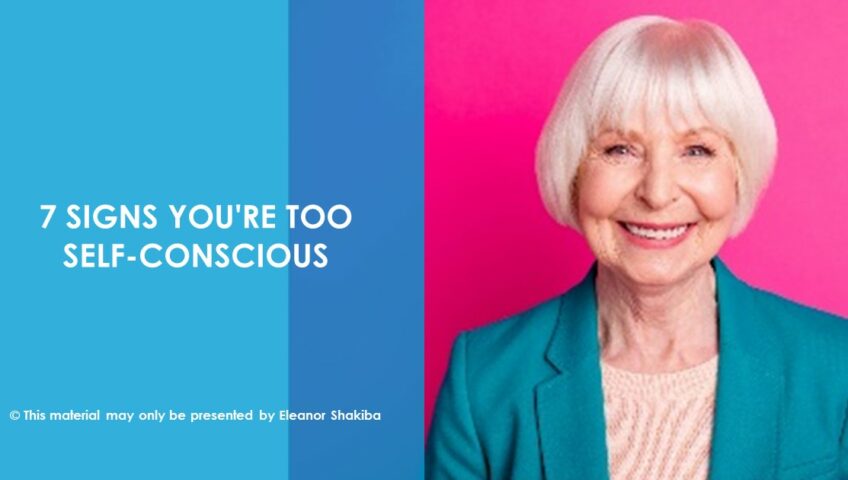If you think self-consciousness is a problem, think again. It is a unique human ability! Indeed, psychologists say self-awareness is a defining characteristic that separates humans from other species. It is a valuable capability. However, when you begin thinking about your ‘self’ too much, you can become self-conscious. This is a distressing state, in which you ruminate about how others see you. It feels uncomfortable and diminishes your sense of personal power and confidence. Here is a quick checklist to help you assess the extent to which you are overly self-conscious.
You feel awkward and ill at ease around strangers
You’re always worried about what people think of you
You backpedal in conversations or don’t share your opinions to avoid conflict
You feel like you always have to be ‘on’
You second-guess yourself often
You zero in on your perceived imperfections
You have negative body language or bad posture
Fortunately, there are practical steps you can take to overcome self-consciousness. The trick is to redirect your attention outwards or into an activity. In other words, stop ruminating and start doing something else. Options to consider include:
- Complimenting someone else
- Asking questions
- Helping someone else
- Doing something you really enjoy
- Going for a walk
- Joining a group conversation
- Commenting on something interesting and starting a discussion about it
Keep in mind that a little bit of self-consciousness is useful. It helps you behave appropriately, act towards goals and learn from mistakes. Just don’t let it turn into rumination or self-criticism. If you need more tips on how to keep your self-awareness in positive mode, come along to one of my free webinars.
About the author: Eleanor Shakiba
Eleanor is a well-known Australian trainer and coach. She’s passionate about creating vibrant workplace cultures where ‘positive deviants’ can thrive. She does this by partnering with HR and L&D teams to present bespoke training and development programs. Eleanor is qualified in Social Anthropology, Positive Psychology, Counselling, Coaching, Adult Education and Neuro Linguistic Programming. She also runs annual retreats for trainers and facilitators. Download a copy of Eleanor’s free ebook Positive Psychology Toolkit for HR and L&D Practitioners.
